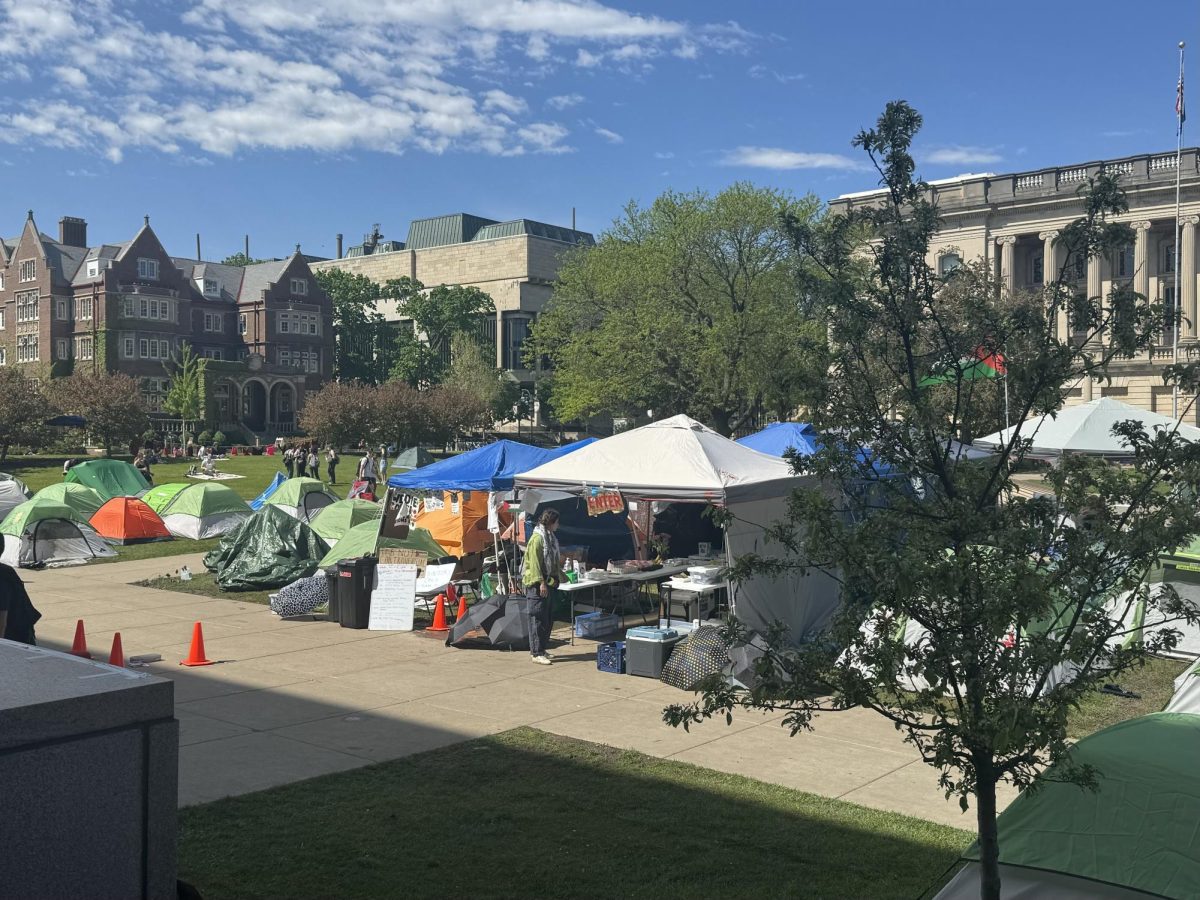This is the fourth part of a series profiling the leaders of the UW-Madison campus community.
For many students, the University of Wisconsin’s Policy, Alternatives, Community and Education program is a group attempting to control alcohol consumption in Madison. But the program does more than curb alcohol-related policies — it also addresses health and safety concerns of high-risk binge-drinking.
PACE, a campus and community coalition, works with a variety of members to provide research compiled from nine other universities nationwide running similar programs.
“People tend to label us as prohibitionists, and there are attempts to label us as not wanting to see students drink, but that’s not really our goal,” Sue Crowley, PACE program director, said in an exclusive interview. “We want to make clear that [Madison] is a safe place. The community can engage with the student community and that makes all of the downtown area safe for everybody.”
By working with other universities, PACE compares working strategies for reducing the affects of high-risk drinking among students, according to Crowley.
PACE’s research is used as guides for city government, City Council and local groups such as the Alcohol License and Review Committee. The information it provides is used to influence alcohol policies in Madison.
“In the last year our efforts really stepped up around house parties, but not about stopping house parties, it was more about how to have safe house parties,” Crowley said.
The project is also conducting work with the ALRC to determine a “Best Practices” guide for local taverns. This would provide responsible beverage training courses at Madison Area Technical College for licensed bartenders, as well as other expanded training for workers at establishments serving alcohol.
Using new technology to scan ID is something PACE may look into, Crowley added.
Another key point for PACE is to limit late-night drink specials in taverns.
“An option the city may propose is a city-wide program limiting specials,” Crowley said.
Six recent liquor restrictions on select establishments, such as Hawk’s and Buck’s Madison Square Garden, were removed by the ALRC because they interfered with competition among taverns.
The City Council has discussed banning happy hour, but Crowley said limiting late-night specials is a more appropriate goal because it targets the student audience.
“It does seem to us to be an unfair target to ban happy hour,” Crowley said.
Another effort the group is examining is redefining city policies to allow 18- to 20-year-olds into entertainment establishments selling alcohol, like The Majestic.
“We do think from discussion with music venues that there are safe ways to do this,” Crowley said. “Students do need a real choice.”
Students have expressed interest in music venues and adult-like atmospheres, she added. Research PACE conducted suggests live music does not promote heavier alcohol consumption.
Other research has pushed the Madison Police Department to employ a crime analyst, a position designated to studying the inter-relationship between alcohol-related activities and the economic cost to a community, a pricey effect.
According to Crowley, Madison police spent $1.3 million on alcohol-related violence in 2003.
PACE is pushing additional policies after a recent report appeared in the American Journal of Preventive Medicine titled, “Reducing Harms in College: Evaluating the ‘A Matter of Degree Program.” Keg registration upon delivery, a restrictive alcohol policy for Greek students, alcohol-free programming, enforcement of bar capacity and outreach to student landlords are all on the project’s agenda.
Other proposals, such as bans on alcohol advertisements in student newspapers and in athletic departments, are currently in the works. According to research by the Harvard School of Public Health, cities and campuses with tighter regulations on alcohol are able to reduce student drinking rates and alcohol-related problems.
“Every student wants the opportunity to thrive in this community while they’re here; they want to have a good time and want to be safe,” Crowley said.
Crowley said UW freshman Jason Gratzl’s fall from a Mifflin Street balcony is unfortunate but a poignant reminder of how similar events could happen to anybody when alcohol is a factor.
“As we begin this school year there have been some very-highly publicized tragic deaths across the country that are alcohol-related,” Crowley said.
There isn’t a student on the UW campus that envisions him or herself in a dangerous situation, nor do their parents or friends, she added.
“We’re trying to focus on student health and safety while they’re here by engaging in lively debates about our strategies,” Crowley added. “We’re always looking for solutions and we welcome students to give us some thoughts on how we might approach this from their perspective.”
By working with classes across campus and campus groups, the PACE project has clearly seen the connection between over-consumption of alcohol and dangerous situations, Crowley said.
When asked what she considered the largest accomplishment of the PACE project, Crowley responded: “I think the biggest thing that PACE has been able to do … is to engage a number of partners to realize [binge-drinking] is a community issue and it is bigger than the university. It’s a broader issue and it’s more than an individual’s right to drink and the responsibility to control their drinking.”












